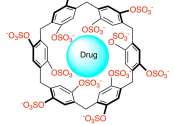Less helps more: Mild bee venom shows greater application potential
Honeybee venom has been used in traditional medicine for centuries as an anti-inflammatory. Only its main component, melittin, has been scientifically well researched. However, with its strong effect, the natural substance ...









